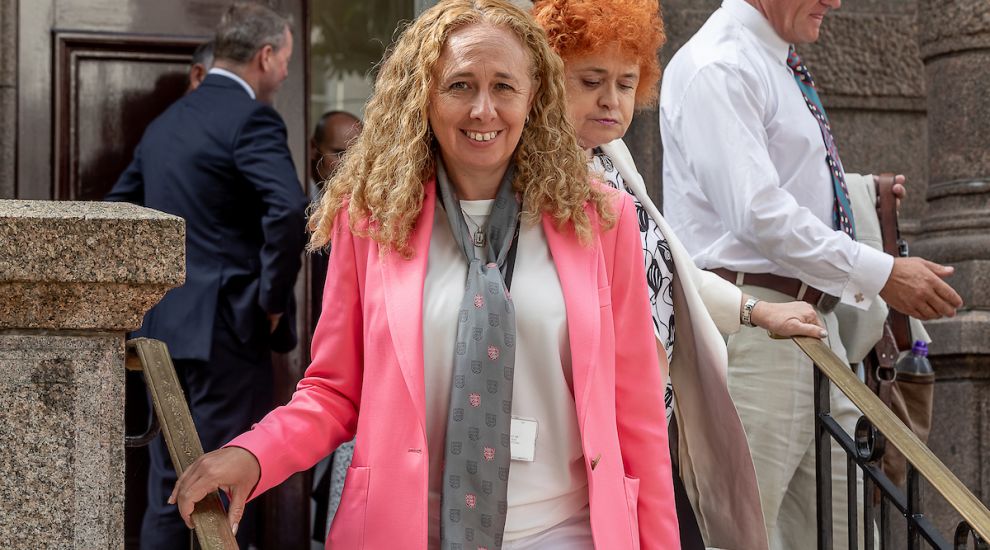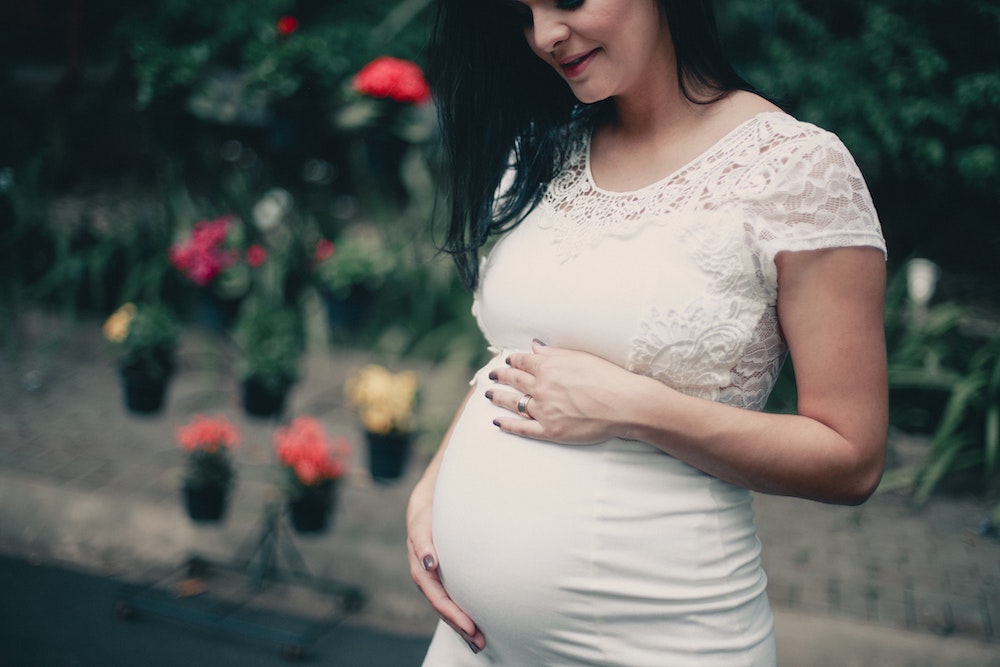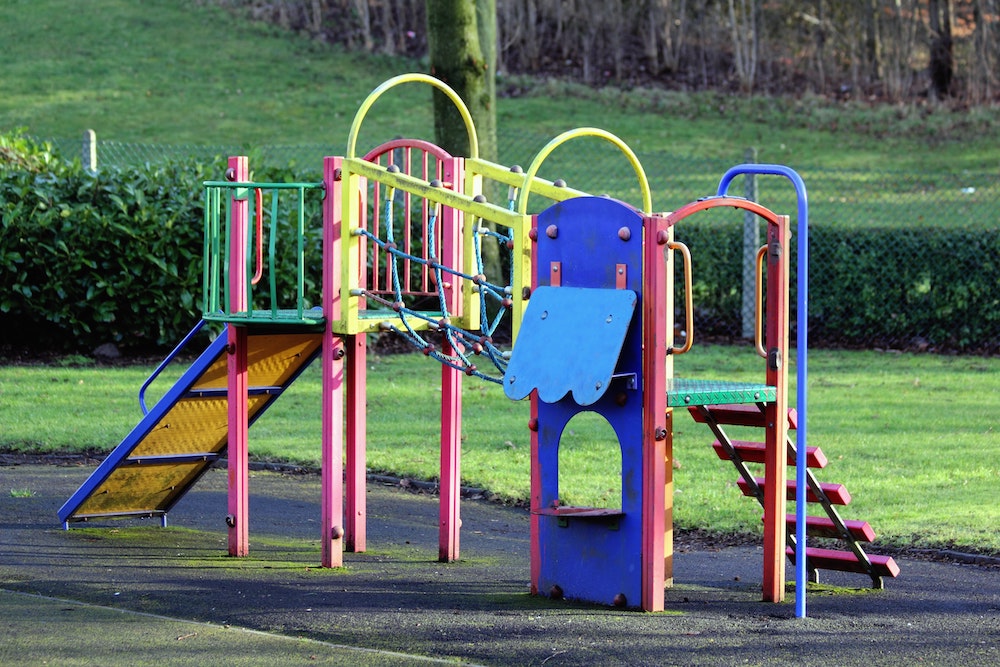


Newly elected Education Minister, Inna Gardiner, is no stranger to the States Assembly.
First elected in 2019, Deputy Gardiner served as the Chair of the Public Accounts Committee, a member of the Diversity Forum and the Social Inclusion Project for minorities in Jersey, a member of the Environment, Housing and Infrastructure Scrutiny Panel and a member of various other review panels in her previous term in the Assembly.
Deputy Gardiner says that her experience of growing up in Kazakhstan at the end of the Soviet era taught her from a young age that it is vital for all children to have the fair opportunity to attain the necessary skills and knowledge to prepare them for a potentially uncertain future.
During her time at university studying Social Work, Deputy Gardiner worked as a youth worker before spending eight years after graduation working in educational roles. After this, she spent 20 years as a self-employed management consultant working with educational institutions as well as international businesses. She was elected as Deputy of St Helier Districts No. 3 and 4 in 2019.
During this term in the Assembly, Deputy Gardiner focussed on furthered diversity and inclusion within the Youth Service through amendments to the Government Plan and ensured that the education estate was considered as part of infrastructure planning. Deputy Gardiner also established play-area standards for the benefit of children and their parents through amendments to the Bridging Island Plan.
Speaking to Express, Deputy Gardiner said that she was delighted to have been selected for the role as Education Minister as she is “really passionate about education and about children” but knows that she has a “huge task” on her hands to create a “deliverable plan”.
She said: “Now that I’m elected, the most important thing for me is to give children the best start in life. I really trust that all members of the States Assembly would like to give children the best life possible.
“Obviously, there are always going to be differences in what people think is the best way to achieve this because we all have our own personal views, but my main task is to find the solutions to move us forward.”
Outlining her priorities, Deputy Gardiner said that she believes that education is not just about children but starts before the child is born.

Pictured: Education "starts before the child is born".
She said: “We need to prepare parents about what it means to be a parent. I remember being a young mother myself, and I needed to learn a lot so some extra training and education would’ve really helped me.
“This needs to continue all though our lives – it’s about lifelong learning. I’m still learning and will continue to learn, that’s how we continue to progress and make our lives interesting.”
With lack of housing being such a key issue at the moment, Deputy Gardiner said that is “crucial that education infrastructure is part of planning applications”.
She said: “If we design x amount of apartments, then we need to have community space that comes with them. This was clear for me as a Deputy for St Helier which is so densely populated.”
She added: “I couldn’t see the proposed 1000 housing units built at the Waterfront without having an answer to questions about where the children will go to nursery and school, or where the children will play.

Pictured: Deputy Gardiner said that playgrounds also need to be accessible to children with disabilities and special needs.
“And it’s not just about children, a real community-feel only develops when you have something for everyone: a younger children’s playground, coupled with an older children’s playground, next to an outside gym for adults to use, alongside a table to sit at for the older population.
“This creates a cross-generational community when people from all ages are together.”
Deputy Gardiner also suggested that one of her most prominent focal points would be ensuring that a “recovery plan” is in place to mitigate the impact that the pandemic had on the lives and education of children and young people.
She explained: “We have a Covid economic recovery plan, but we need to have recovery plan for children and young people too.
“Covid impacted them in so many ways -- academically, socially, emotionally, physically and mentally – and that’s why we have to invest.”
“A recovery plan needs to be holistic and incorporate all of these different elements, whether it’s mental health support or physical support from children being stuck in small flats.”

Pictured: "We need to have a Covid recovery plan for children and young people".
She acknowledged the investment into Covid ‘catch-up’ classes for younger children who had fallen behind at school and suggested that it would be important to “measure the effectiveness of this” however was currently unsure at how this measurement was being carried out.
Deputy Gardiner outlined her belief that support in this area should not be stopped, as the “gap that was created in reading, writing and even in social skills during the pandemic was huge and at all levels.
“We need to see how we can fix this.”
In her nomination speech for Education Minister earlier this week, Deputy Gardiner said that ensuring schools and their headteachers have sufficient funding would be a key priority.
She also explained that she was not yet privy to the current school funding formula but would like to review it to ensure all needs are met, with a view to having an updated one in place, if necessary, by September 2023.
She admitted: “I have no idea how much the formula includes for different types of special needs children, or funding for gaps created by Covid as the review started before the pandemic although it has continued and progressed since then.”
Deputy Gardiner added that she hoped to be able to bring a review of the island's education estate to the States Assembly in September and debate its results, and consult on the current 14+ transfer system.
She did not rule out future gain-sharing agreements to secure pay rises for teachers and education staff, but pledged to work "collaboratively" with unions and apply "pressure" to Treasury, the Chief Minister and States Employment Board to recognise their "hard work".
Deputy Gardiner is particularly passionate about creating a local environment with professional pathways that encourage local university graduates to return to Jersey.
Speaking to Express, Deputy Gardiner explained that there would be several avenues to achieving. She said that steps forward would involve close collaboration with the whole Council of Ministers, particularly the Housing Minister, as the high cost of living is one of the key reasons why graduates feel they cannot return to the island.
She also outlined plans to “check what the connections are between young people who left Jersey to study and paid apprenticeships back on the island during the summer holidays”.

Pictured: University graduates need to be encouraged to return to the island.
Deputy Gardiner explained: “It’s so important that university students can gain I experience; I know several graduates who have finished their courses who come back with great degrees and great aspirations but they don’t have the experience to match it which makes it a struggle for them to get jobs.
“If we could create this bond between companies and graduates, then it would create easier pathways for young people to come back to Jersey.”
She added: “I’m sure some incentives would also be useful, but that is open for discussion! I’m definitely going to meet with parents and young people who are involved in all aspects of education to get their views too.
"It's so important that their voices are heard."
Comments
Comments on this story express the views of the commentator only, not Bailiwick Publishing. We are unable to guarantee the accuracy of any of those comments.